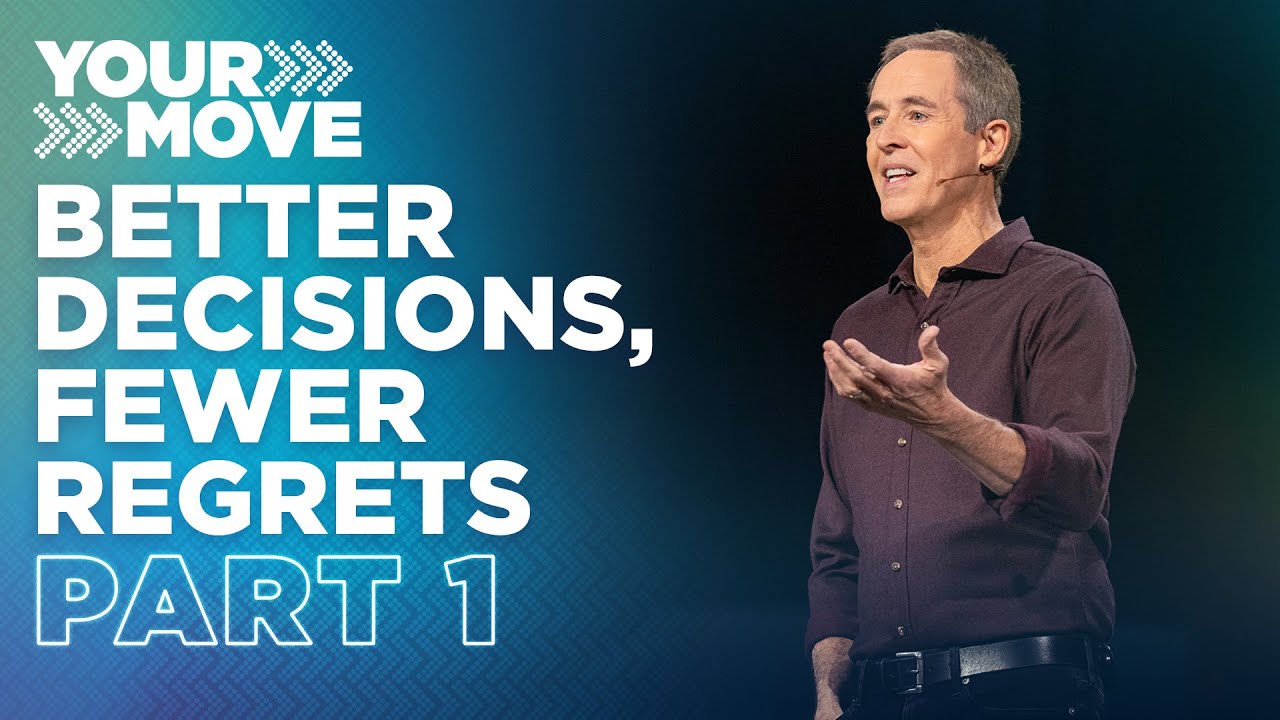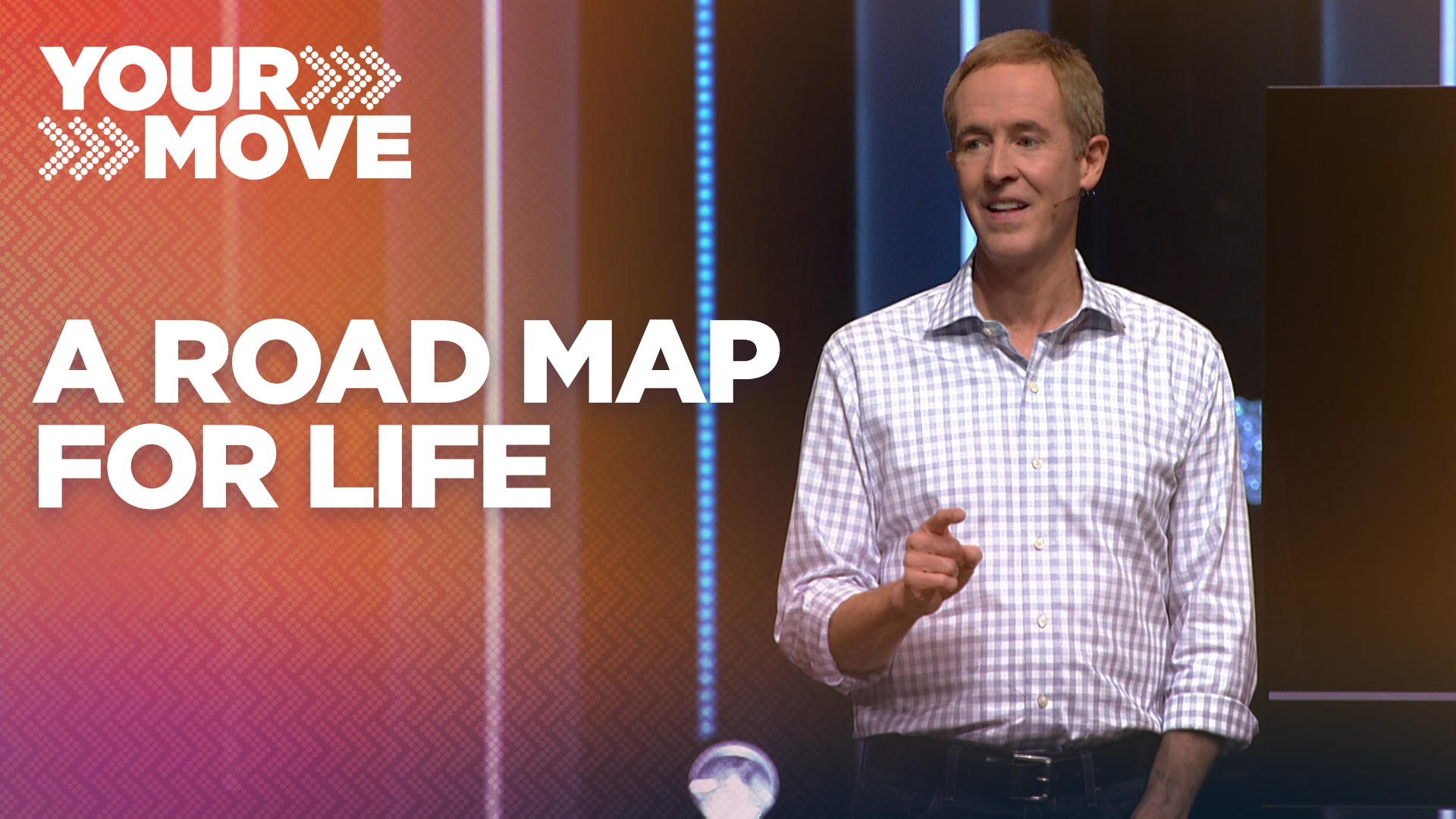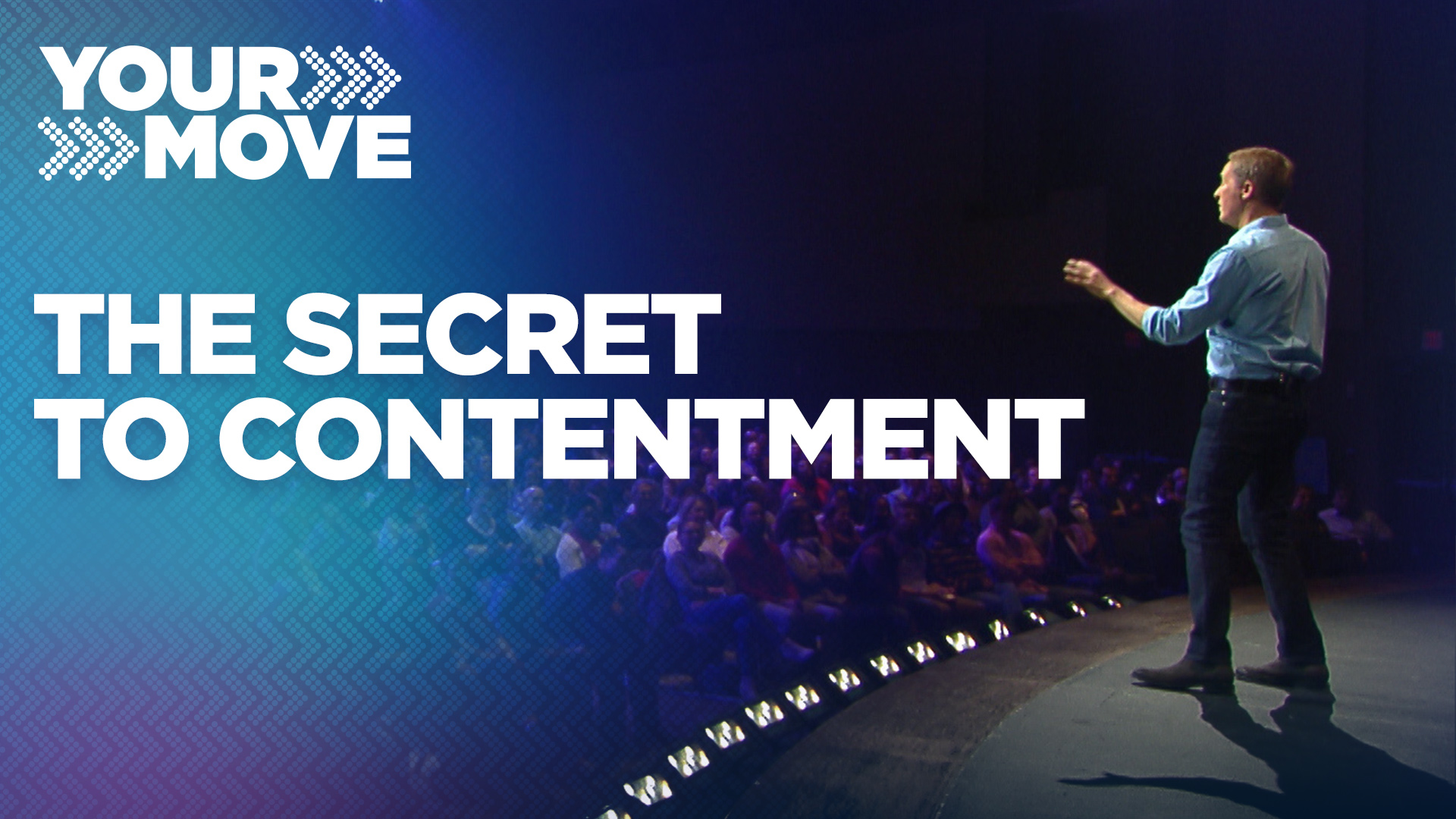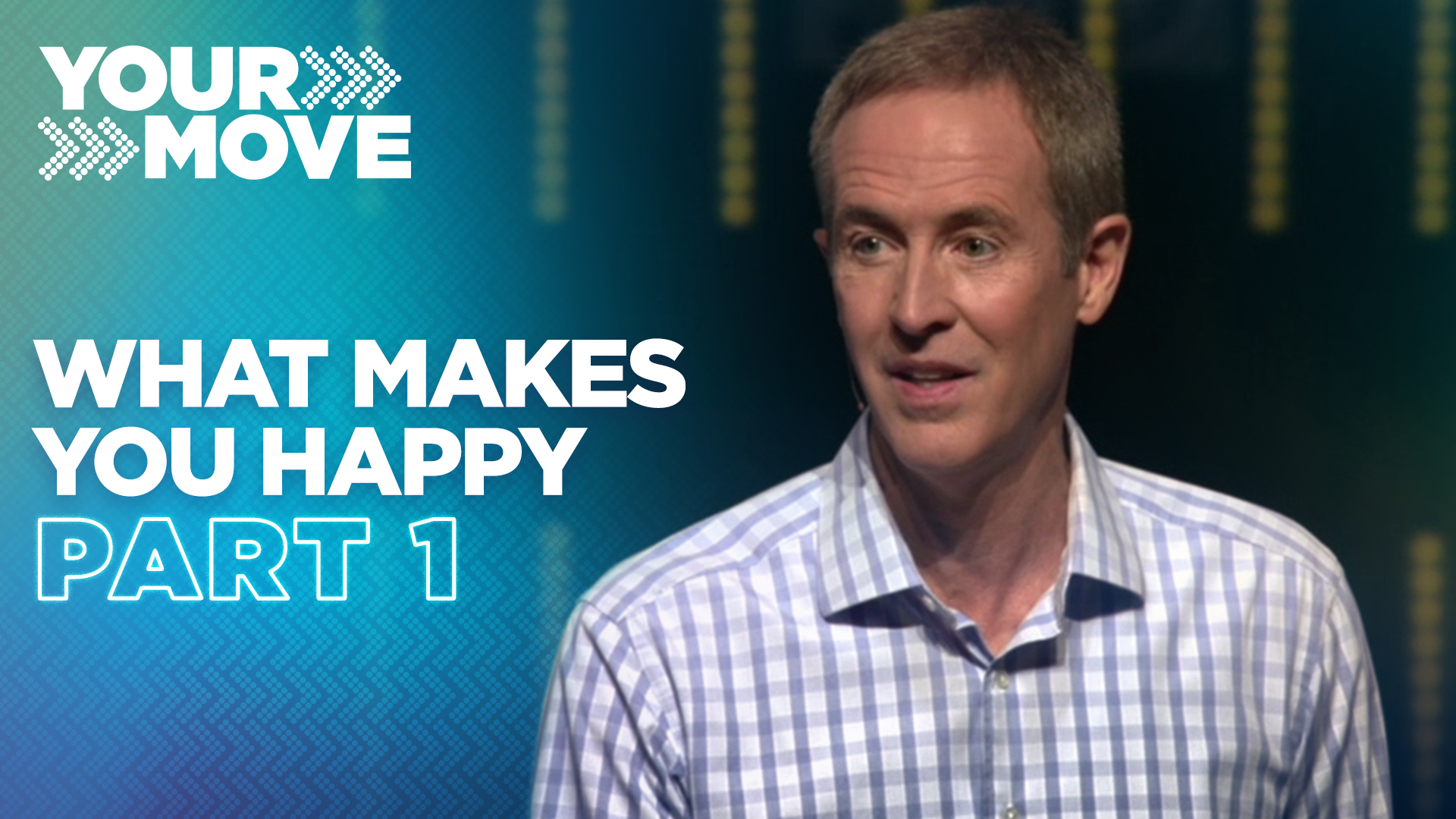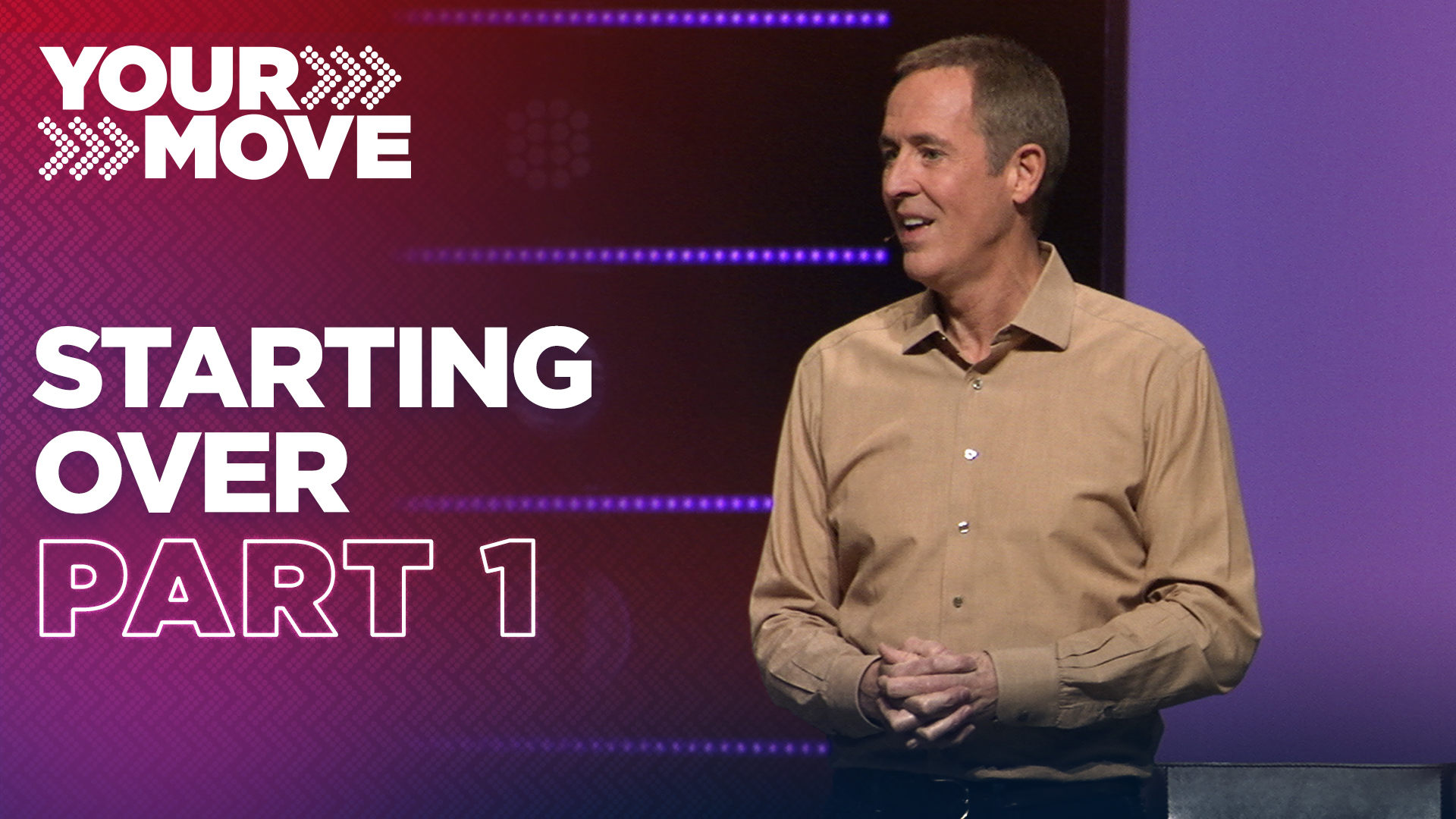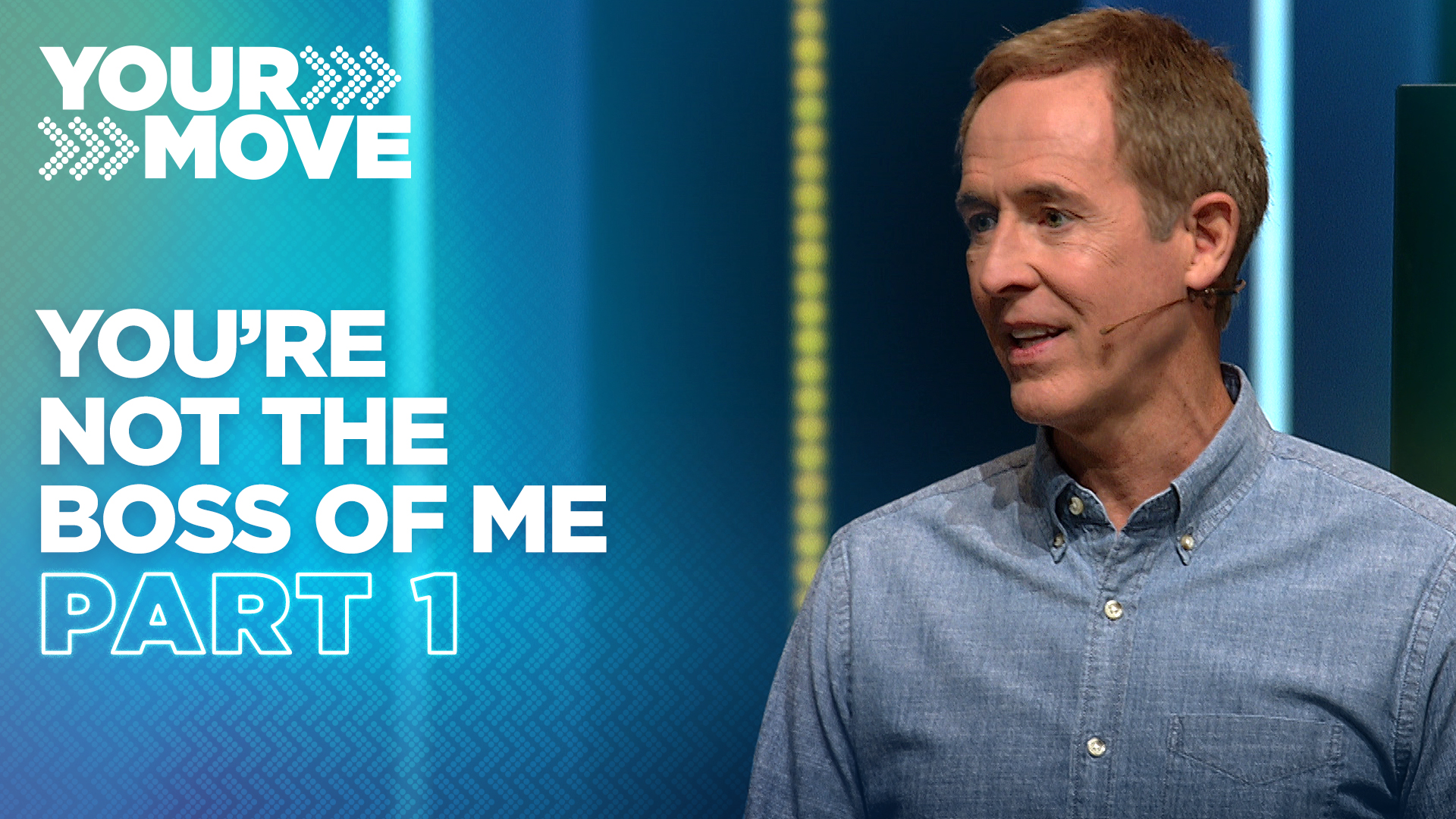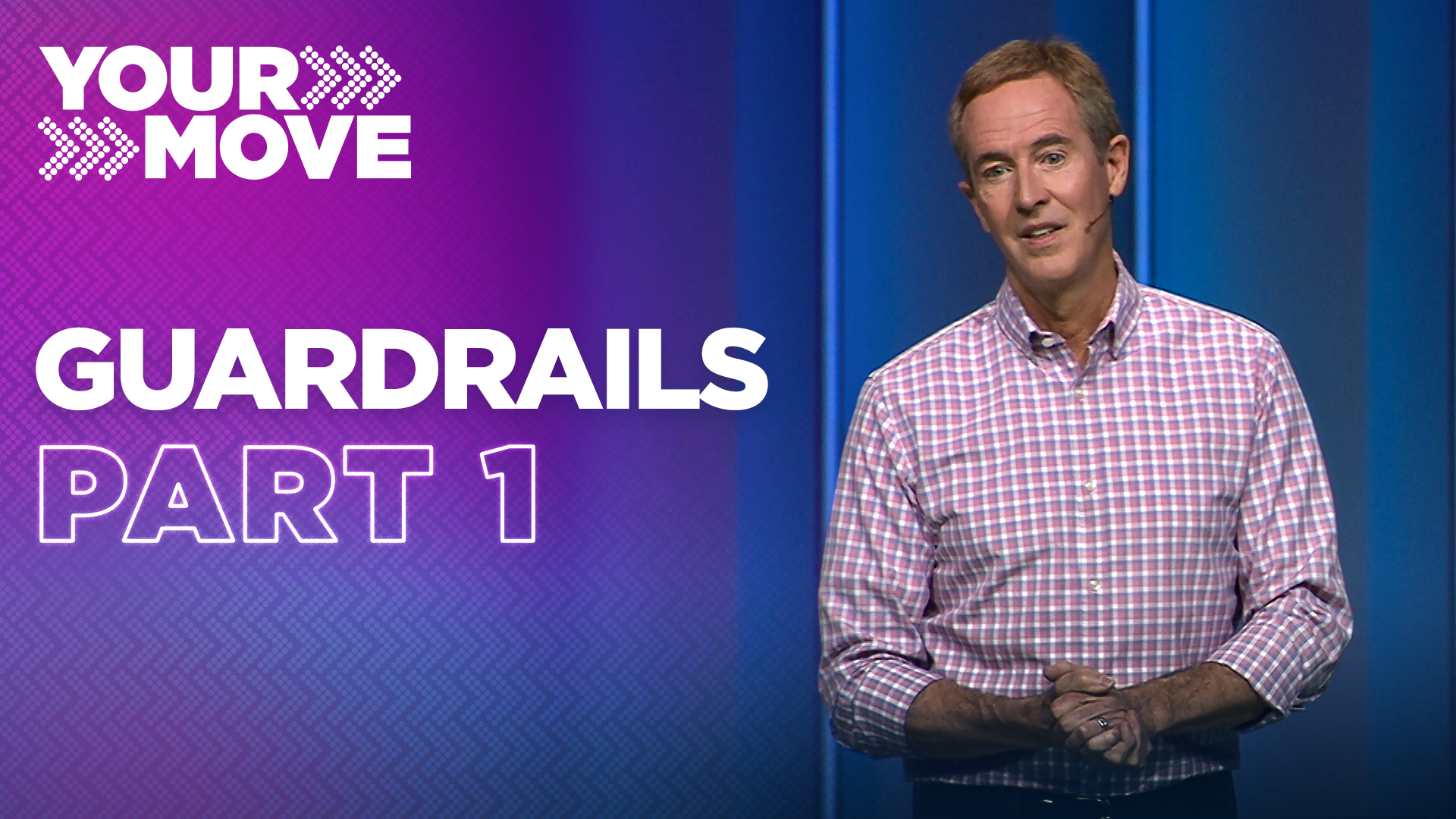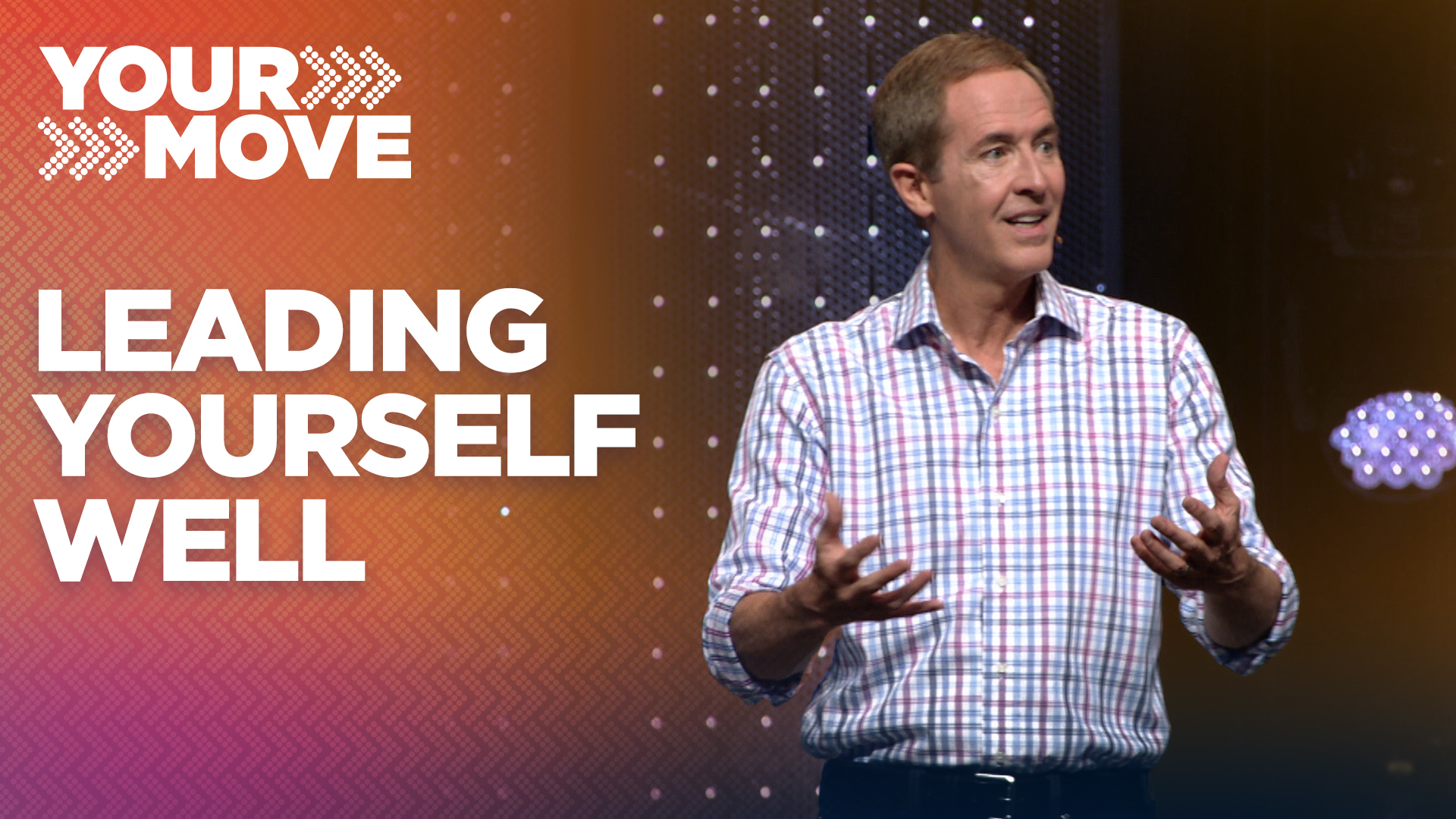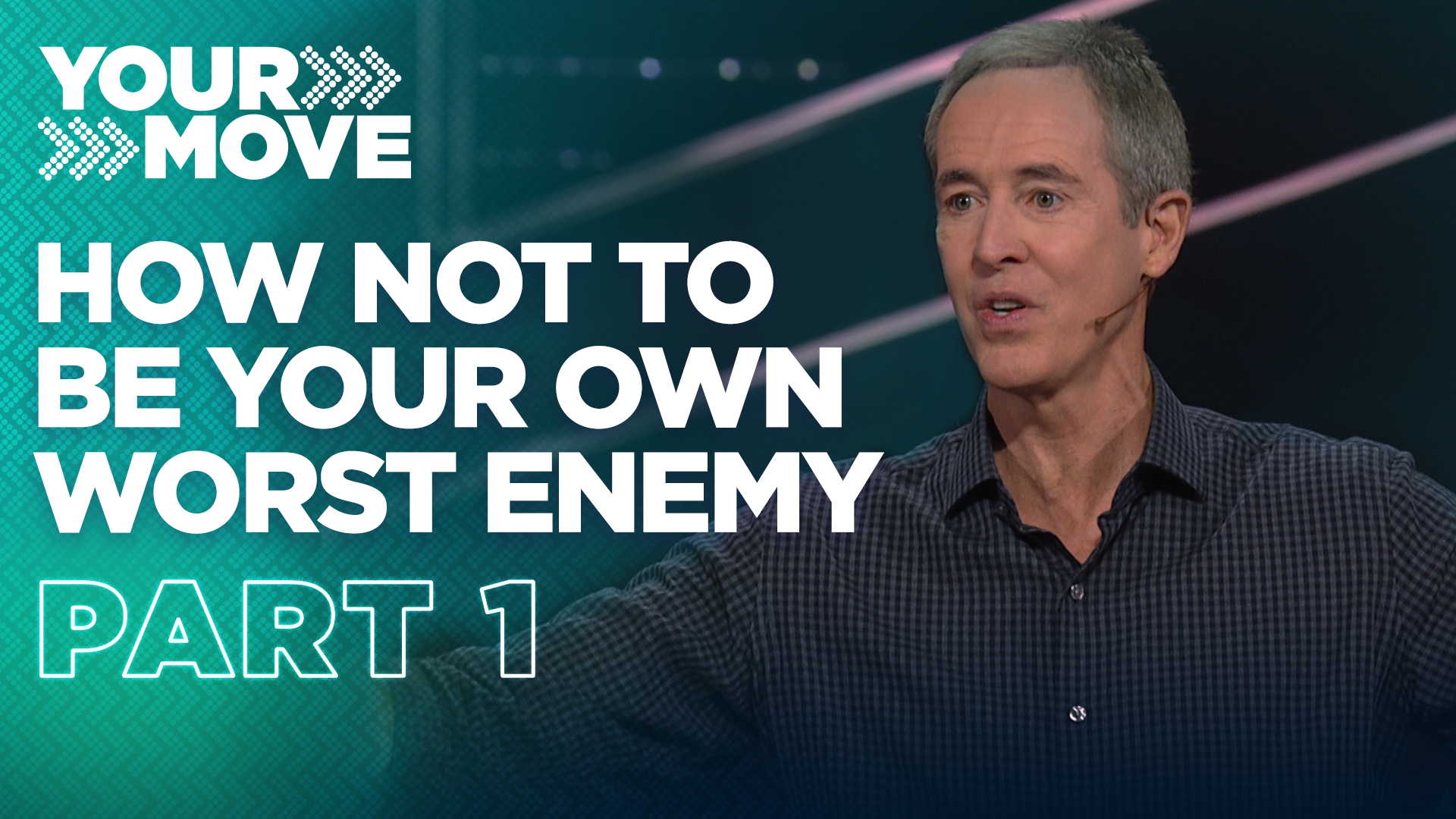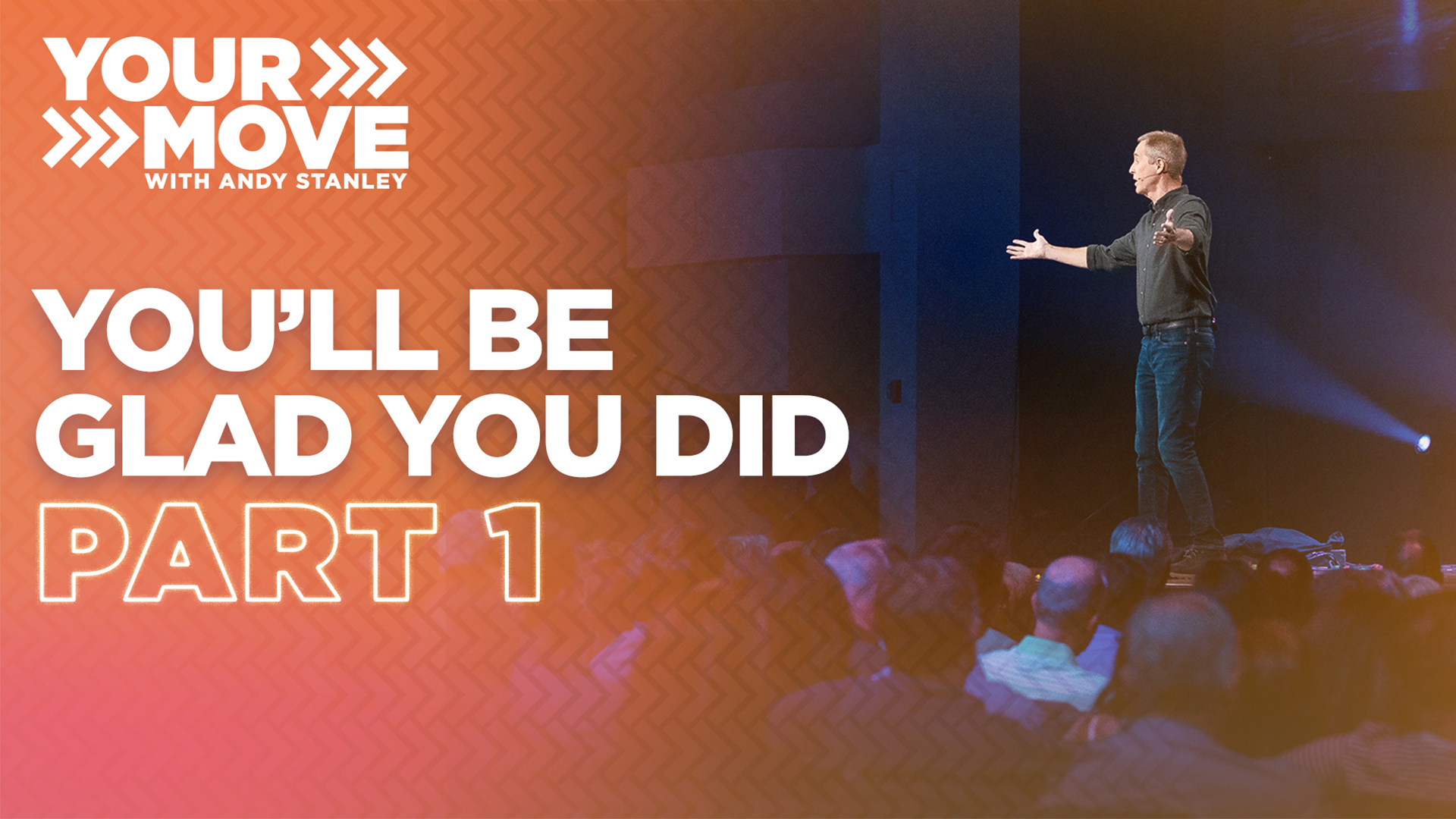Along the road of life, we all pick up some baggage. But how do you keep the ghosts of your past from showing up in your future?
- Which of the following “rules for the road” is most challenging? (a.) Don’t travel alone. (b.) Don’t pick up strangers. (c.) Choose a destination, then borrow a map. (d.) Don’t carry unnecessary baggage.
- Who in your life has achieved something you hope to achieve one day? How (and when) could you ask them to share their wisdom with you?
- Do you have a lingering bitterness toward anyone from your past? If so, consider the following steps. What are the pros and cons of this approach?
-
- Identify the person.
- Determine what they took from you.
- Declare the debt canceled.
NOTE: The following content is a raw transcript and has not been edited for grammar, punctuation, or word usage.
And so tonight, we’re talking about the rules for the road, basically, the rules for navigating life successfully. So I’m gonna tell you all the secrets of navigating life successfully? No, I don’t think so, but I’m gonna share some of them with you as I have figured these out. And the truth is as we know, life is complicated, all of us have lived long enough there that life is complicated. But that always takes us by surprise, because it just doesn’t seem like life should be so complicated, right?
And of course, sometimes we make it more complicated than it should be. And as I was preparing for our time together, I thought of a story that is absolutely true, even though you’re gonna think I’m making this up. But I have a friend who has two younger brothers, and speaking of the beach, so his youngest brother, there’s three boys; the youngest of the three, and when he graduated from high school, got some of his buddies together and they did their senior trip to Daytona, dude. [laughter] And so anyway, they made their way down to Daytona, and a week later, all of the friends came back, and he just stayed. For a year.
[laughter]
And weeks went by, and months went by, he finally contacted his family. And no surprise here, guess what was involved in his decision to stay? A girl. The girl said that. Yeah, so I’m not being criticized. Yes, there was a girl in the story. Surprise of all surprises. So, a year goes by, a little more than a year goes by, and he lets him know, “I’m coming home and I’m bringing her with me, and we’re getting married.” [chuckle] I know. And so, he shows up, okay? So, this is the part you’re gonna think I’m making up. So, my buddy and the middle son, ’cause there’s three boys, the middle boy and my older… My friend who’s the oldest and the daughter, And I know that… When I practiced telling the story, I thought, “This kinda sounds like one of Jesus parables, doesn’t it?” Except when Jesus told a parable, he made up a story in order to make a point. This is a true story that has no point, okay?
[laughter]
So this is the difference between this story and one of Jesus’ parables. So, no lie, so he gets there with the girl, and they walk in, and lo and behold, his girlfriend/fiance recognizes his brother, the middle one. Because…
[laughter]
Two years earlier, the middle son had graduated from high school. I told you you’re gonna think I’m making this up. [laughter] And he also went to Daytona Beach and met said girl, but he came back without her.
[laughter]
Anyway, so, they decide not to tell the younger brother. Yeah, this is gonna be a secret. Right, for how long? Not. That’s how long. Not very, okay? So sure enough, the younger brother marries this girl, and it did not… I’m not gonna tell you the end, it’s terrible. It did not end well. Okay, so, the point is it is important to know the rules for the road, and to obey the rules for the road, lest you have a bad ending to your story. So, what I wanna do for a few minutes is I wanna give you these four rules for the road, okay? And three of them are really common sense. But sometimes it’s so important for somebody to remind us of common sense because here’s what you know, you’ve lived long enough to know this: Common sense is not always that common, is it? Yeah.
So, rule number one, rules for the road. Number one is this: Don’t travel alone. Life is better connected, life is better with friends. You were not made to do life alone. Don’t isolate yourself, especially when things aren’t going well, don’t isolate yourself. Don’t listen to that voice. And when it comes to not traveling alone, here’s something we should have learned in high school, but most of us didn’t. When it comes to the people that you’re doing life with, don’t just gravitate toward acceptance. Don’t just gravitate toward acceptance. Now, we don’t think about choosing friends or picking friends ’cause that’s weird. How would you actually pick a friend? Would you interview ’em? Nah, no. Would you… No. So what happens… You know, this is what happens.
We don’t really choose our friends or choose who we do life with sometimes; we just gravitate toward the group that accepts us first. And if you’re new to this city or you’re new to this community, of course, your natural inclination, like mine would be, is to gravitate toward the people who are most… Who have open arms, because again, most of us don’t wanna be isolated. So the trick of this is don’t be content to do life with people who just like the music you like, and don’t just like the restaurants you like, and don’t just watch the shows you like, and don’t just watch the movies you like. Find people who not only share your taste in music and food; find people who share your values. Because at the end of the day, and this is something we’ve all learned the hard way but we never outgrow this principle: Our friends, the people that we’re doing life with, the people we’re journeying with, our friends really do determine the direction and the quality of our lives.
And we think, “No, no, no, no, no, no. I choose my own direction.” You just look back on your own history like I would. The friends, the people, the world that you move in relationally determines, determines that sometimes, it over-determines what you thought you determine for yourself, determines the direction and the quality of your life. And one more thing on this and I’ll move on to number two. Surround yourself with people who are taking care of themselves. And here’s why this is important, this is just a principle: People who are taking care of themselves will be more inclined to take care of yourself. And people who don’t take care of themselves will be less inclined to watch out and to take care of yourself.
And oftentimes, again, the first group of people that we interact with in a new job, in a new city, we’re always gonna have something in common with them. But to wait and to allow that inner circle to be the people that are moving in the direction you’re moving in, this is how you finish the journey.
Rule number two for the road, and don’t judge me too harshly for this one. But don’t pick up strangers. Okay? Haven’t you heard this your whole life? First, when we were little kids, it was don’t what the strangers? Don’t?
Talk. Yeah. And then it was don’t take what from strangers? Candy.
Yeah. And then you got a car and it’s like don’t put these strangers in your car. And the problem with all those rules, it’s good advice, is that no one ever defined “stranger” for us. It’s like we’re just supposed to know what a stranger is. And if you’re thinking, “Well, if a stranger is just somebody I don’t know, [chuckle] I’m never gonna get to know anybody.” So, I thought, since we’re all adults, that I would define “stranger,” okay, because this is a big, big deal. A stranger is just someone who’s strange. [laughter] That’s what a stranger is.
[laughter]
So, don’t pick up people who are strange. Now, there’s a problem with this, and the problem with this is, just to be honest, you’re a little bit strange, right? And I’m a little bit strange. So I brought in the definition, okay, ’cause this really is an important point, okay? So, I changed it to this. A stranger is someone who’s stranger than you. How about that, okay?
[laughter]
Wherever you are on the strange meter, they’re just a little bit stranger than you. Now, this is really a really important principle. And here’s why: Because the healthier you are, you know this, the healthier you are, the more helpful you can be. And when you and I allow the wrong influences in our life, again, you’re thinking, “Andy, are you talking to middle schoolers?” No, this is true for all of us our whole lives. When we allow unhealthy people in the inner circle, not that we can’t have unhealthy friends, all of us have unhealthy relatives, there’s just no way to avoid all unhealthy people or strange people, whatever word you wanna use. Be kind to everyone, serve everyone, but be cautious.
The real rule for the road is you can hand money out the window, but you just don’t invite everybody into the car. The healthier you are, come on, you know this, the healthier you are, the financial healthier you are, the physically healthier you are, the mentally healthier… The healthier you are, ultimately, the more helpful you can be. So just be careful who you allow into that inner circle. So, let me ask you this question, and we’ll go to number three. Do you have any strangers in your life? Do you have any strangers in your life? Is there anybody in your life, and if you’re honest, they’re making you less healthy?
Do you have anybody in your life, ladies, let me just address you ladies, are there any guys in your life and because of your relationship with them, you’re beginning to doubt yourself? He’s a stranger. He’s a stranger. Ladies, you need to stop, open the door, and invite him out of your car.
[laughter]
You need to close the door, and give him five bucks or buy his donuts, or whatever is going on, but just don’t let him drive around in the car with you, okay? Because he’s a stranger, he’s causing you to doubt yourself. Guys, there may be a stranger in your life that’s a friend or it may be somebody you’re dating or it may be somebody who’s dating you, and then you woke up and you were dating them, you ever have that happen?
[laughter]
It’s like, “Oh, no, I think we’re dating. When did it start? I don’t know, I think she started before I did, [laughter] but now we’re dating. I don’t know how that happened.”
Here’s the thing: Everybody is somebody that God loves, and everybody is someone we should care for. But the healthier you are and the more you take care of yourself, you’re in a better position to take care of other people.
And I just wanna give you permission, if you had any doubts about it. There are times in all of our lives in every season of life, because we’re taking care of ourselves so we can take better care of other people, that you just gotta get out of the car and just, you know, gently… It’s always awkward. Nobody goes “Oh, I understand completely.” No, it’s always awkward.
[laughter]
Nobody’s like, “You know, I actually agree. I’m a stranger, and I shouldn’t be in your life.” It never goes like that. It is always awkward, but there are times you just have to invite some people out of your life so that maybe in a different season of life, you could be there for them, but in a different capacity. So don’t pick up strangers.
Number three: Choose a destination, and then borrow a map. Choose a destination and borrow a map. Here’s what I mean by that, and this is kinda tricky: In every season of life, I should say, each season of life is a new season that requires a different set of skills. Every season of life, it requires a little bit of different set of skills in order to be successful.
Single, dating, married, married with kids, maybe single again, dating again. And the thing is, it’s true of all of us, every time we move into a new season, we’ve never been there before. Which means we really don’t know what we’re doing. And by the time we figured it out, we’ve moved into another season of life. And the problem is the mistakes we make in one season, we take into the next season. We all know this. So, what I mean by this rule for the road is simply this: Determine, right now in this season, determine what you want your life to look like in this season, determine what you want your life to look like in the season, and then here’s the trick: Find someone who is a little bit further ahead that has successfully navigated this season, and ask them for their map.
Find somebody who is where you want to be, ask them how they got there. And all of you can do this and I’ll tell you the trick, here’s the trick: First of all, never, ever ask anyone to mentor you. Never do that. Never… Because a mentor… It sounds like a homework assignment. It’s like, “Ugh, I don’t have time for that.” Here’s the trick, and don’t tell anybody I told you this: You email them, or you text them, or you talk to them, depending on the nature of the relationship. And you say this: “Hey, if I bought you coffee, or if I bought you breakfast, I bought you lunch, I’d just like to ask you three questions.”
Most people will say yes.
I’m telling you, you will learn so much from so many people. And then sometimes, at the end of the coffee, you’re paying, then you say, “Hey. Would it be okay if in the future some time, I reached out if I had some more questions?” And most of them will say yes.
And you just got yourself a mentor. But don’t tell them, it will scare them off, okay?
[laughter]
Because, and I know you know this, but again, common sense, wisdom is not having all the answers; wisdom is knowing what you don’t know and having the humility to ask someone who does. And I’m not knocking your friends, your peers, the people who are in the same season of life that you’re in, they don’t know any more than you do. So you’re just kind of sharing little bit of your ignorance, but to find someone who is where you wanna be, and to get their map, that is the wise thing to do.
Fourth one: Don’t carry any unnecessary baggage. Rule for the road number four: Don’t carry any unnecessary baggage. Don’t raise your hand.
[laughter]
Do you have baggage? I know you do, because after 18, we all have some, right? I mean, we just all do. We’ve all been hurt. We’ve all been betrayed. We’ve all been, in some cases, abandoned. So we all come into adulthood with some baggage. We don’t need to be ashamed of that, but we certainly don’t need to carry it any longer than necessary, ’cause baggage leaves us kind of eaten up on the inside, right? And it leaves us insecure, it always leaves us insecure, even though on the outside, we look so secure. It always leaves us a little angry because we’re out of balance.
A few months ago I was listening to Tim Ferris podcast, I think it’s called The Tim Ferris Show, and he was interviewing Amanda Palmer, who’s an artist you may or may not be familiar with, and Amanda was telling this long, long, drawn-out story, it was very interesting, about a friend of hers, and I didn’t get her friend’s name and I don’t think he’s anybody famous, but in her conversation with him, he made a statement that I hit pause and stopped and wrote down, and it just… I just think this statement, this quote, is so powerful, and here’s what he said to Amanda at some point, he said this: “If you don’t deal with your demons, they go into the cellar of your soul and lift weights.” Woo! When I first heard this, I’ll be honest, my first thought was, Ah! I wish I’d come up with that. That is so good!”
[laughter]
“Now I’m gonna have to give credit,” which I always do. “If you don’t deal with your demons,” this is so true, “if you don’t deal with your demons, they go into the cellar of your soul and they lift weights.” In other words, if you don’t deal with them, it doesn’t get better. They get bigger, and you get bitter. And you and I carry baggage that we don’t need to carry from one season to the next, one relationship to the next. The Apostle Paul, who stepped on to the pages of history as somebody who hated Christians, so, if you hate Christians, he’s your guy, okay, hated Christians, arrested ’em, and then he becomes one, becomes a Jesus follower, writes letters to 1st century Christians. And in one of these letters, he gives us his version of that quote, and here’s what he wrote. He says, “Okay, let’s be realistic. You’re gonna get angry, you’re gonna be angry, you’re gonna be angry because you’re gonna get hurt, you’re gonna be angry because well, life is life. Be angry. There’s a time and a season for that, but don’t sin.” In other words, don’t allow your anger to drive your behavior. Don’t let anger be the boss of you. So what do we do, Paul? He says, “Well, let me tell you. Be angry, but don’t sin. And put a time limit on it. Don’t let it just go on and on and on from season to season and relationship to relationship. Be angry, but don’t sin, and don’t let the sun go down while you’re still angry.” And this was a common saying in the 1st century.
And it wasn’t literal, it’s not like, “Hey, you gotta deal with this before the sun goes down.” It’s like, “Yeah, what if the sun was already down, do I get like 24 hours?” [laughter] So it’s not literal. He’s saying, do you know what he’s saying? He’s saying what we kinda already know. Don’t just let it go on and on and on. You’ve gotta deal with this, you’ve gotta cap this, you’ve gotta stop this. Don’t let the sun go down while you’re still angry, and don’t give, and it uses kind of the same terminology as the quote, and don’t give the devil space. Don’t give the devil a foothold. Don’t give the devil a toehold, because if you do, do you know what he’s gonna do? He’s gonna go down to the cellar of your soul and build a gym. And if you don’t deal with your demons, they’re gonna move in and they’re just gonna lift weights in the cellar of your soul. You’re like, “Andy, are we talking about the literal demons and literal devil?” You know what? In terms of this principle, it doesn’t matter what you believe about that, because you know intuitively, instinctively, there is something happening here that all of us have experienced from some time.
So let me ask you in a different way. You got any demons down there lifting weights? If you’re not sure, ask around. The people closest to you know the answer to this. And if you ask them, and when you ask them, they step back before they answer, you know the answer! [laughter] Right?
Because here’s the tragedy of carrying around too much baggage: The people that suffer the most are the people we love the most. So this doesn’t… [chuckle] The irony is this doesn’t hurt the people that hurt us; it hurts us. And it hurts the people that have nothing to do with the people who’ve hurt us. So Paul’s point is deal with this as soon as possible. Don’t carry any of this any longer than necessary. Don’t carry it season to season. Don’t carry it relationship to relationship. Again, the only person that gets hurt, you know this, is you.
Then he goes on. This seems so unrealistic. He says, “Come on. Get rid of it!” He makes it sound so easy, doesn’t he? Get rid of all bitterness. And the idea is pick it up, take it to the street, and leave it. Pick it up, take it to the street, and leave… Bag it and leave it. Get rid of all bitterness, rage, anger, along with every form of malice. And I know, I’ve been doing this a long time. When I stand up here and say something like that, you’re thinking, “Okay. Well, Andy, yeah. Well, like so your momma hurt your feelings one time and you were bitter and you… ” If you heard my story, you might be thinking, if you heard my story, you may give me a pass. You may say, “You know what? Your story is so bad, you sit over here in the pass section, you do not have to get rid of your anger and bitterness, you hang on to it. You need to hang on to that, because if you don’t hang on to it, you’re gonna be like letting them off. So you get a pass.”
The question is, is this even possible? Is it possible… Is it really possible? Well, it must be, and in just a minute, I’m gonna make a suggestion about an exercise you can work through to do this. But then next, Paul connects what he’s saying to Jesus.
Now, if you’re not a Christian or not a Jesus follower or not a church person, and somebody paid you to be here, or somebody bribed you to watch this, I get that. I would just say to you, figure out a way to get rid of your bitterness. Because the demons and the cellar of your soul are just lifting weights. And I know, I’m just gonna give you the benefit of the doubt, I know your anger is justified. And I’m gonna assume your bitterness is justified. And I’m gonna assume that if you got up here and told your story, we would be like, “Well, no wonder,” but for your sake, and for the sake of the people that you love, would you figure out a way to get rid of it?
So, here’s what Paul says next: He says, if you’re a Christian, this isn’t just advice. You have to do this. Because if you’re a Christian, there’s way more at stake than simply you. He says, “Be kind and compassionate to one another.” Why? Because treating people well is our brand. Treating people with kindness is our brand. Treating people with kindness and compassion isn’t extra credit; treating people with kindness and compassion is our brand, because Jesus said, “The way people are gonna know that you’re my follower is what you do at 11:00 on Sunday morning?” No. “The way people are gonna know that you’re my follower is by how well you treat other people.”
So, anything that keeps you from treating people well is in the way of following Jesus. Unresolved hurt, unresolved hurt, unresolved abandonment, unresolved whatever it might be, always gets in the way of love. So why not get rid of it? And now, he tells us how: Forgiving each other.
Easy for me to say, standing up here. I know. Easy for me, but important for all of us. And this is why the next line, this is why the next line is so crucial. This is why the next line was probably difficult for the Apostle Paul to ever get his mind and heart around. “Forgiving each other just as in Christ, God forgave you.” We as Christians do not forgive people because they deserve to be forgiven, they don’t. We forgive because we are forgiven. We cancel other people’s debts, even the people that have racked up a lot of debt. We cancel other people’s debts because our debts have been canceled. Because the way to understand is this the hurt from your past and my past, the abuse from your past and my past, the betrayal, it creates baggage. It creates baggage because what it does, it essentially opens an account.
Because the person that hurt you the most and the person that betrayed you the deepest, those people essentially took something from you. Which means what? It means they owe you. What do they owe you? Perhaps they owe you your entire childhood. Perhaps they owe you that first marriage. Maybe they owe you the opportunity to tuck your kids in to bed at night. They took something from you, which means they owe you. Which means the account that you have open stands open, the account is open, and you are waiting to be paid back. And that’s what creates the baggage: The waiting. The open account, the hoping, the longing, the injustice.
But here’s the good news and the bad news. The good news and the bad news is this: It’s never gonna happen! That’s good news because you can close the account; it’s bad news because you wish the account would stay open long enough for them to close the account for you by paying back what they owe you. But come on, let’s just be honest. We’re adults. They can’t pay you back. They couldn’t, even if they wanted to. They can’t return the past. They can’t restore that marriage. They can’t give you that time back with your kids. They can’t restore your reputation. So how foolish of us, even though it’s completely understandable, how foolish of us to keep an open account with somebody, waiting to be paid back when they’re not gonna pay us back and they couldn’t pay us back. And all the time we wait, our demons are lifting weights, moving with us from season to season, relationship to relationship.
The way that we get rid of all bitterness, rage, anger, along with every form of malice, is by closing the account. By deciding, “Do you know what? I’m gonna do precisely what they don’t deserve for me to do. I am going to forgive them,” because forgiveness is a decision. But more specifically, and this may help you, forgiveness is a decision to cancel a debt. The way that you move ahead is by closing the account. And to close the account requires three things that I wanna give you real quick. If you have your phone, you may wanna take a picture of this next screen.
So here’s how this works: The first step, there’s three things, the first one’s real easy. The first one is identify who, you’ve already done that, right? Identify who. Who took from you? Who took from you? And then number two, this is the part that everybody skips and this is where people get hung up with canceling debt and with closing those accounts. You have to determine what was taken from you. As long as you are trying to forgive generally, you will never have specific freedom. So the second part of this is so critical, and this is the part most people skip.
You need to sit down, and you need to write down exactly what they took from you. Make a list. He took your dignity. He took my time. She took my 20s. He took my opportunity for education. You just need to make a list because you have an open account and they actually owe you and they actually can’t pay you back, but you can’t cancel the debt until you know exactly what’s been taken. And for some people, this is a very, very painful exercise, but for some people, this one step is the key to being free to move on.
And then third, you declare it cancelled. You declare it canceled. “Here’s my list. And God, I have written down what they have taken from me. And they can’t give it back anyway, so why hang on to this? Even if they showed up tomorrow, they can’t give back to me what they’ve taken from me. I’m deciding to say, ‘You don’t owe me anymore.'” And when those old feelings rise up, and when those emotions swell up, you stop and say, “No. That’s an old debt, it’s been canceled.”
And over time, do you know what happens? Our emotions begin to catch up with the reality of the decision that we made.
Now, because I know how some of us are thinking, this is not about fairness. Okay? Forgiveness is not fair. In most cases, justice and fairness are out of reach. This is about freedom. Freedom from the control of those who hurt you, that you continue to allow to hurt you because you won’t close the account. So if this strikes a chord with you… There’s first three rules for the road. They’re common sense, you may have some work to do there. But I’m telling you, to travel with unnecessary baggage is to ensure that your future will never be as bright as it could be. To travel with unnecessary baggage guarantees that your future relationships will be more complicated than they need to be. So would you get alone, and would you identify who, would you determine what, and then would you declare it canceled?
And don’t carry any unnecessary baggage, cancel those debts, close those accounts, and keep ’em closed, And over time, those voices and those conversations will grow weaker and weaker, and one day, you’ll recognize and realize they’re gone for good, and you will be free. You will be free to become the person that God created you, ultimately, to be.


